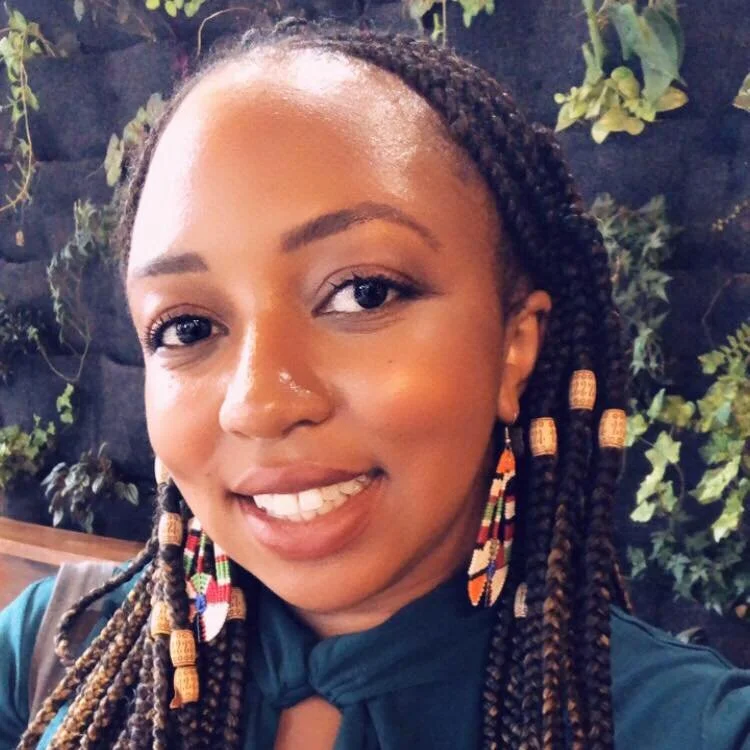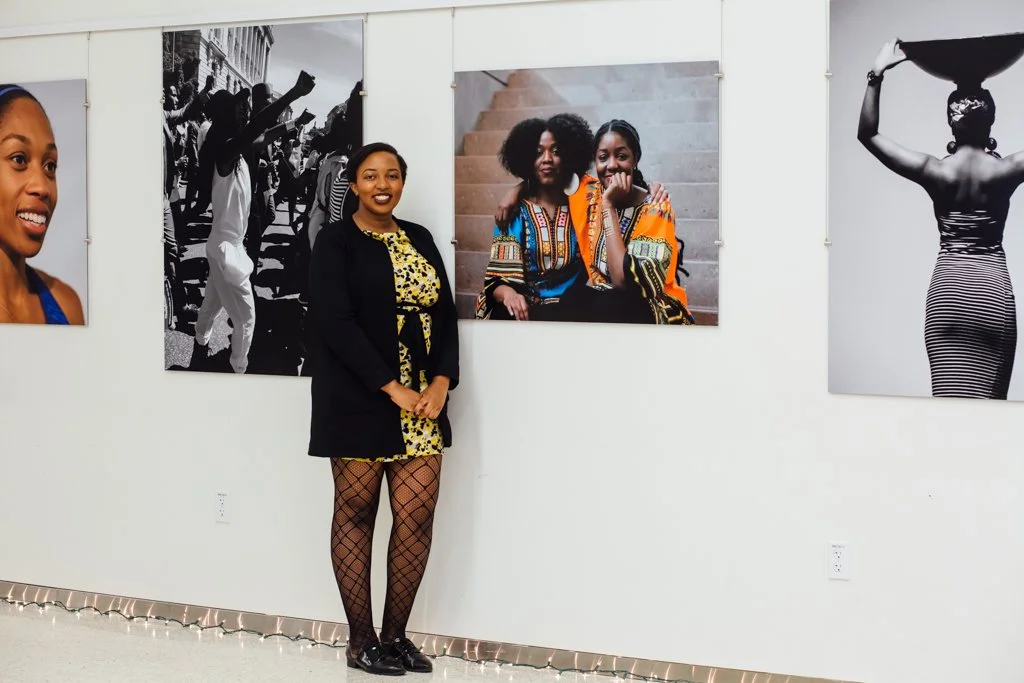Polly Irungu
Story by Ameer Safadi
Five students. One car. Many trips. Polly Irungu and 4 other students spent their senior year packing into a car and heading to Portland with a common goal. Operating in a predominantly white institution, their goal was to build a vessel to empower students of color to create and collaborate.
Through many meetings with a Portland UO campus professor, these five students were able to get UO NABJ off the ground and fully incorporated at the University of Oregon. This was just the first time Irungu built a table for her and others like her to thrive.
“If you don't have a seat at the table, build your own table,” said Irungu.
Growing up in a traditional African home, Irungu was expected to pursue a career in medicine, engineering or academia. When she chose to pursue journalism, her father took the liberty of sending her lowest paying major articles where journalism was on the list. This, and her decision to go against her parents’ wishes, only motivated her.
“[My upbringing] is everything right,” Irungu said, “My lived experiences and the cultures I’ve been exposed to influences every part of my work and who I am.”
In her time at the University of Oregon, Irungu did not know of many photographers of color – let alone Black or women. This absence inspired her to start a Twitter list of Black women photographers while at the UO. Fast forward to her graduation in 2018, supporting Black women and people of color grew as a topic of social conversation. She was inspired to fill this need for exposure.
Irungu started by reaching out to photographers to gauge whether they felt the same lack of exposure. She then started a crowdfunding initiative on Twitter and was able to raise $14k to help at least 70 black women photographers who needed immediate financial relief due to the COVID-19 pandemic.
July 2020 is when she launched Black Women Photographers - a global community that started with just 100 members and now boasts over 1000 active members from over 40 countries. The organization’s Instagram page has doubled its followers in the last 6 months. “The growth is a testament to the need that this community needed to fill,” said Irungu.
Besides being a hub for exposure to the industry, Black Women Photographers provides its members with portfolio reviews, webinars, educational programming and in-person community meet ups as the pandemic eases in certain parts of the world.
“It’s so easy to hire locally and find us,” said Irungu. “If I’m able to do this work and put together lists, then my challenge to others whose job it is to take the time to research and build trust within our communities is to do the same when hiring.
Irungu said the goal is to put money in the pockets of Black women. To celebrate its first anniversary, Black Women Photographers announced a grant fund and partnership with Nikon. The multinational camera company gave the organization 40,000 in grant funding and 10,000 in camera equipment to help empower Black women photographers to be boundless with their craft.
Irungu strives to empower the amazing work her community is doing across all topics. She set up a “celebrating wins” channel in the community Slack group where members celebrate their accomplishments. “It’s community over competition,” Irungu explained.
“Everybody, especially now with the pandemic, has thought about their own legacy,” Irungu said, when asked about her lasting impact. “I’ve always been surrounded by people who want to help and give back and my mom is the role model for that. I’ve watched her and how she’s always helped anyone and everyone and that has influenced me in what I’m doing now.”
Irungu feels very gratified by the work she’s been able to accomplish and hopes to continue seeing growth in the community. From UO NABJ to Black women photographers, Irungu stresses the importance of forgoing the need to be accepted into someone else’s table and build your own.
“I built a table and now I’m just getting seats for everyone else.”


